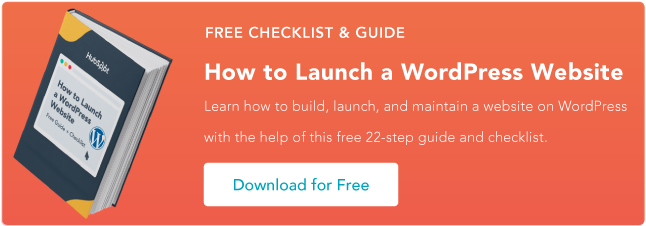What are custom post types in WordPress?
There are seven default post types in WordPress:
- posts
- pages
- attachments
- custom CSS
- changesets
- navigation menus
- revisions
Posts and pages are most often used for displaying content, and the other five play more technical roles and influence how posts and pages look.
Each post type has properties and structure for reaching particular goals. For example, the difference between posts and pages is that pages are hierarchical, and posts are organised with taxonomies (categories and tags). Also, there are templates for displaying each, with a specific set of meta fields.
You can make a great website using only default post types. But, what if we need a new entity with a different set of properties? In this case, you should create a new post type with a set of properties, a template, and a hierarchy. This is called a custom post type (CPT).
As an example, the most common and well-known custom post type is the WooCommerce product custom post type. It has many fields for displaying and selling various products, such as price, SKU, and a short description.
.webp?width=650&height=283&name=5%20Best%20Custom%20Post%20Type%20Plugins%20for%20WordPress%20(guest%20post).webp)
Another advantage of using custom post types is that you can separate each type into an individual hierarchy, making it easier to manage and display them and keeping your WordPress dashboard more organised.
The fact that CPTs are pretty easy to create and manage makes WordPress one of the best content management systems that can be used for a huge range of websites.
Creating and Displaying Custom Post Types
When making a custom post type, there are two main things you need to do: create an optimal post structure with all the fields to be populated, and correctly display those fields and posts on the front end.
So, as a rule, at least two templates should be created: one for posts and one for taxonomies. Post fields create separate records in a database, meaning they can be queried and displayed anywhere on your site, not only inside the post they refer to. And using those fields, posts can be filtered and organised in many different ways.
Because they can store almost any type of information, there’s a fantastic opportunity to create custom-tailored dynamic websites where fields (and don’t forget that any post is just a collection of fields) are displayed in a particular way, depending on the current conditions. The simplest example of such a condition is logged-in or not-logged-in website visitors.
Ideally, a custom post types plugin should be able to create and offer extended functionality for displaying fields dynamically. And the more versatile and extensive this functionality is, the better.
Without further ado, let’s dive into the best custom post type plugins for the job.
1. Custom Post Types UI and Advanced Custom Fields (ACF)
-1.webp?width=650&height=330&name=5%20Best%20Custom%20Post%20Type%20Plugins%20for%20WordPress%20(guest%20post)-1.webp)
As a rule, these two plugins work together. Because Custom Post Types UI is a graphical UI for custom post types creation and nothing more, the Advanced Custom Fields plugin can create and manage fields only, not post types.
Custom Post Types UI and ACF make a great duo because custom post types don’t make much sense without custom fields.
To work with these, you must be ready to dig into code. The good thing is that there’s excellent documentation, so it’s doable even for beginners. Plus, tons of third-party add-ons can extend the functionality of both plugins.
A free version of ACF is often enough, but if you want to have repeater fields and other perks, you will need a Pro version.
Pros: These two plugins alone are flexible enough for many users, but there are many third-party plugins to significantly extend the functionality.
Cons: You need to dig into the code and manually change templates.
Price: Custom Post Types UI is entirely free. Advanced Custom Fields has a free version, and Pro starts from $49 per year.
2. Toolset
Toolset is a powerful WordPress plugin for creating and managing custom post types and fields and displaying them on the front end without coding. One of the advantages of this plugin is that you can make templates with dynamic loops for custom post types quickly and easily using Gutenberg builder.
Also, there's a module for making forms for creating custom post types, users, and relationships and updating them from the front end. Another great module is Access, limiting access to certain content depending on the user's role.
The plugin has a user-friendly interface that is very easy to use. Also, it's well-documented.
Pros: This plugin offers robust functionality, from making and managing CPTs to creating templates and submitting content from the front-end forms.
Cons: Toolset doesn't have a free version, forms have slightly limited functionality, and the relationship feature supports only "posts-to-posts."
Price: Toolset starts at $69 per year.
3. JetEngine
-2%20(1).webp?width=650&height=326&name=5%20Best%20Custom%20Post%20Type%20Plugins%20for%20WordPress%20(guest%20post)-2%20(1).webp)
The JetEngine plugin offers 19 modules to switch on and off, plus another good dozen of default modules. This plugin allows you to create and manage CPTs and make the most advanced loops and queries thanks to the Query Builder functionality and display them with the help of Listings (with one more layer of fine tunings), building them visually with Gutenberg or Elementor editors.
It also offers a unique Custom Content Types (CCT) entity, which is almost the same as CPT but forms its databases to boost website performance.
JetEngine supports Relations to connect various posts and meta fields. This plugin has another cool Glossary feature to store options for meta fields and forms (not to submit them manually every time and change them dynamically).
This plugin doesn’t require coding skills and offers a user-friendly interface and solid structure.
Pros: a powerful plugin with unique capabilities (CCT, Query Builder, Data Store, Glossary, Dynamic Visibility).
Cons: It’s not free.
Price: JetEngine starts at $43 per year. The best value option is a full subscription for all 20 Crocoblock plugins for $199 per year.
4. Meta Box
-4.webp?width=650&height=348&name=5%20Best%20Custom%20Post%20Type%20Plugins%20for%20WordPress%20(guest%20post)-4.webp)
Meta Box is a plugin for developers. It has a free version, but it's limited. It might be an excellent choice for you if you want to deal with code a lot because you know HTML and CSS professionally and understand some basics of PHP. This framework is mainly a mix of generators, code, and GUI for developers.
Pros: It offers 46 types of custom fields and has quite many extensions. The paid version also offers rich functionality.
Cons: It's pretty pricey, doesn't support dynamic visibility, and has relatively limited functionality for forms.
Price: Meta Box starts at $149 per year. You can also pay $229 to get all premium extensions.
5. Pods
%20(1).webp?width=650&height=293&name=5%20Best%20Custom%20Post%20Type%20Plugins%20for%20WordPress%20(guest%20post)%20(1).webp)
Pods is a framework for dealing with custom posts and fields working under a GPL license, so it’s free. Yet, it has a list of premium add-ons that can be purchased as a Pro package. This plugin’s functionality is quite impressive, yet some post types are missing (like repeaters).
Pods allows you to create amazing relationships (25 things to relate to, including database tables). It has a pretty simple template builder where items are referred to with the help of special tags.
Overall, this plugin is great, but still requires some developers’ creativity.
Pros: It’s completely free, quite powerful, and offers a fantastic toolset for creating relationships.
Cons: Some important features are missing, the plugin doesn’t feel solid, and some documentation articles are outdated.
Price: Pods is free. The price for paid extensions starts at $49 per year.
Enhance your WordPress website with a custom post type plugin.
Custom post types are essential for many websites. And even some sites that don’t use it might consider doing it to avoid workarounds and structure inconsistencies, boost performance, and put the project on another level.
There are many free and premium plugins available for creating and managing CPTs. Some are basic, and some can put your website on steroids and turn it into a truly dynamic project.
WordPress Plugins


-3.webp?width=650&height=306&name=5%20Best%20Custom%20Post%20Type%20Plugins%20for%20WordPress%20(guest%20post)-3.webp)






